2738 Sat 8 Sep 2018 LESSON (81) Sat 8 Sep 2007
2738 Sat 8 Sep 2018 LESSON (81) Sat 8 Sep 2007
Do Good Be Mindful - Awakened One with Awareness (AOA)
TIPITAKA
The Classification of Tipitaka
Pali Canon Online
The Original Words of the Buddha
in 01) Classical Magahi Magadhi,
02) Classical Chandaso language,
03)Magadhi Prakrit,
04) Classical Hela Basa (Hela Language),
05) Classical Pali,
06) Classical Deva Nagari,
07) Classical Cyrillic,29) Classical English,
The Classification of Tipitaka

Preface
Tipitaka in Theravada Tradition is a huge collection of
teachingsattributed to the Buddha and His eminent disciples written down
in analmost dead and very ancient language named “Pali”. Owing to
thelanguage in which His precious words were inscribed Theravada
traditionis also well known as “Pali Buddhism”. There are other versions
of Tipitaka available in Sanskrit and Chinese for Mahayana
Tradition.Tipitaka is considered to be the most authentic texts for all
the Buddhistsregardless of schools and for the ‘Truth Seekers’ as well.
Buddhist worldwith its all complements like Sangha community, laity,
Buddhist culture,Buddhist education, propagation, missionary works,
research etc, is verymuch dependent on this Canonical Pali Literature
called “Tipitaka” as thenucleus of the sources.Even though I’ve studied
some training rules, suttas, and the ultimaterealities for my BA degree,
I did not know the Essential Structure or theconstituents of whole
Tipitaka. To prepare the assignment on
“TheClassification of Tipitaka”
for one of the important subjects of IMAP
“Tipitaka Studies”
conducted by
lecturer venerable PhraSudhivorayan
helped me to have a beautiful portrayal of entire TipitakaFramework and
perhaps a guideline to explore any subject matters in it.Actually for
the preparation of the assignment I had to search manyrelated books of
renowned scholars including the translated Pali Canonitself. I’ve come
across different interpretations, views, explanations of certain subject
matter on Nikayas and the authentic Pali text itself whichI’ve very
much tried to mention in this paper in the chapter concerned.An account
of the emergence and development of Tipitaka throughout theAges with
brief record of important Buddhist Synods has been provided.And I’ve
also attempted to give brief elaboration on divisions (vagga)
andsub-divisions of each Nikaya; important training rules &
regulations,Vinaya Kamma, rites for bhikkhus and bhikkhunis in Vinaya
Pitaka;elucidation of seven Abhidhamma books in nut shell.My sincere
gratitude goes to lecturer
Phra Sudhivorayan
,
librarian,officials, my senior Dhamma friends, colleagues for their
respectivecontributions to complete this paper on time.Wat Pawana, Bang
Khun Non. Ven. Binayananda SramanBangkok,12
th
October 2008
2
The Classification of Tipitaka
Contents
I.Introduction
II.
The role of Tipitaka as the Buddhist scripture2.1: Definition of
Tipitaka2.2: The emergence and development of Tipitaka2.4:
Classification of Tipitaka in a chart III.Vinaya Pitaka3.1: The essence
of the basket of discipline3.2: The constituents of Vinaya Pitaka3.3: A
brief elucidation of the constituents of VinayaPitakaIV.Suttanta
Pitaka4.1: The essence of the basket of great discourses4.2: The
constituents of Suttanta Pitaka4.3: A brief elaboration of the
constituents of SuttantaPitaka
V.
Abhidhamma Pitaka5.1: The
essence of the basket of higher discourses5.2: The constituents of
Abhidhamma Pitaka5.3: A brief elucidation of the constituents of
Abhidhamma Pitaka VI.The benefits of Tipitaka StudiesVII. Conclusion
Bibliography/ Reference
3
Related Interests
Buddhist TextsGautama BuddhaBhikkhuReligious ComparisonIndian Religions
Documents Similar To The Classification of Tipitaka
Carousel Next
The Classification of Tipitaka
The Classification of Tipitaka
Uploaded by
blmitra1
TRIPITAKA
TRIPITAKA
Uploaded by
NikhleshRamesh
Horner I B Tr Book of the Discipline Vinaya Pitaka Vol VI Parivara 428p
Horner I B Tr Book of the Discipline Vinaya Pitaka Vol VI Parivara 428p
Uploaded by
trungdaongo
Book of Gradual Sayings [Anguttara-Nikaya] Vol. v (2003). (259p) - Woodward, F.L.; Hare, E.M. (Trs) -
Book of Gradual Sayings [Anguttara-Nikaya] Vol. v (2003). (259p) - Woodward, F.L.; Hare, E.M. (Trs) -
Uploaded by
EvamMeSuttam
Further Dialoges of the Buddha
Further Dialoges of the Buddha
Uploaded by
spootland
Book of Gradual Sayings [Anguttara-Nikaya] Vol. III (2008). (355p) - Woodward, F.L.; Hare, E.M. (Trs) -
Book of Gradual Sayings [Anguttara-Nikaya] Vol. III (2008). (355p) - Woodward, F.L.; Hare, E.M. (Trs) -
Uploaded by
EvamMeSuttam
Book of Gradual Sayings [Anguttara-Nikaya] Vol. IV (2006). (349p) - Woodward, F.L.; Hare, E.M. (Trs) -
Book of Gradual Sayings [Anguttara-Nikaya] Vol. IV (2006). (349p) - Woodward, F.L.; Hare, E.M. (Trs) -
Uploaded by
EvamMeSuttam
Functions of the Eight Kinds of Consciousness in Yogacara
Functions of the Eight Kinds of Consciousness in Yogacara
Uploaded by
ANKUR BARUA
Pali First-year All
Pali First-year All
Uploaded by
Danuma Gyi
The Literature of the Theravada Abhidhamma
The Literature of the Theravada Abhidhamma
Uploaded by
ANKUR BARUA
Abhidharmakosabhasyam,Vol 1,Vasubandhu,Poussin,Pruden,1991
Abhidharmakosabhasyam,Vol 1,Vasubandhu,Poussin,Pruden,1991
Uploaded by
Uanderer
(PDF) - Buddhist eBook - Good Questions and Good Answers
(PDF) - Buddhist eBook - Good Questions and Good Answers
Uploaded by
terrylim
Pali Txts 6th Council
Pali Txts 6th Council
Uploaded by
wmpruitt06
JIvaka and Ayurveda.pdf
JIvaka and Ayurveda.pdf
Uploaded by
kpshankaran123
2013 Perth Tour E-Flier
2013 Perth Tour E-Flier
Uploaded by
richbert
Ethical Concept of Buddhist Social Development (Full Article by. Phodhi)
Ethical Concept of Buddhist Social Development (Full Article by. Phodhi)
Uploaded by
ສຽງທັມVOICE
Kern and the Study of Indian Buddhism_ With a Speculative Note on the Ceylonese Dhammarucikas
Kern and the Study of Indian Buddhism_ With a Speculative Note on the Ceylonese Dhammarucikas
Uploaded by
onlineyyk
Buddhism
Buddhism
Uploaded by
Majjhima Champa
Origin and Varieties of Buddhist Sanskrit
Origin and Varieties of Buddhist Sanskrit
Uploaded by
111-365340
Kieffer-Pulz P.-ceremonial Boundaries in the Sri Lanka
Kieffer-Pulz P.-ceremonial Boundaries in the Sri Lanka
Uploaded by
shu_s
Peter N. GREGORY - Is Critical Buddhism Really Critical? - p. 286
Peter N. GREGORY - Is Critical Buddhism Really Critical? - p. 286
Uploaded by
Ɓuddhisterie
Buddhism
Buddhism
Uploaded by
opel1
Buddhist Meditation
Buddhist Meditation
Uploaded by
nieotyagi
More From Fabiana Fabian
Carousel Next
ecrire-sf.pdf
ecrire-sf.pdf
Uploaded by
Fabiana Fabian
Michael J. Pettid Korean Cuisine an Illustrated
Michael J. Pettid Korean Cuisine an Illustrated
Uploaded by
Fabiana Fabian
deco soie bourgeois.PDF
deco soie bourgeois.PDF
Uploaded by
Fabiana Fabian
Andy_Sawyer,_David_Seed_Speaking_Science_Fiction.pdf
Andy_Sawyer,_David_Seed_Speaking_Science_Fiction.pdf
Uploaded by
Fabiana Fabian
Patricia Pisters the Matrix of Visual Culture W
Patricia Pisters the Matrix of Visual Culture W
Uploaded by
Fabiana Fabian
Jennifer Cahill Secrets of the Ninja Their Trai
Jennifer Cahill Secrets of the Ninja Their Trai
Uploaded by
Fabiana Fabian
Ralph C. Wilcox, David L. Andrews, Robert Pitter-Sporting Dystopias
Ralph C. Wilcox, David L. Andrews, Robert Pitter-Sporting Dystopias
Uploaded by
Fabiana Fabian
Deborah Cartmell I.Q. Hunter Heidi Kaye Imelda
Deborah Cartmell I.Q. Hunter Heidi Kaye Imelda
Uploaded by
Fabiana Fabian
Thomas Moylan, Tom Moylan Scraps of the Untainte
Thomas Moylan, Tom Moylan Scraps of the Untainte
Uploaded by
Fabiana Fabian
David Shulman, Guy G. Stroumsa] Dream Cultures E
David Shulman, Guy G. Stroumsa] Dream Cultures E
Uploaded by
Fabiana Fabian
Film Funding Opportunities Germany
Film Funding Opportunities Germany
Uploaded by
Fabiana Fabian
Craciunul in Traditia Initiatica
Craciunul in Traditia Initiatica
Uploaded by
Fabiana Fabian
Revista Nr. 9
Revista Nr. 9
Uploaded by
Fabiana Fabian
Korea Shooting Guide-English
Korea Shooting Guide-English
Uploaded by
Fabiana Fabian
Rumi Lassaad Metoui JeanClaude Carriere Love
Rumi Lassaad Metoui JeanClaude Carriere Love
Uploaded by
Fabiana Fabian
Nouvelle Lune en Maisons
Nouvelle Lune en Maisons
Uploaded by
Fabiana Fabian
Dictionnaire Des Symboles Musulmans
Dictionnaire Des Symboles Musulmans
Uploaded by
Fabiana Fabian
Facts About Korea French
Facts About Korea French
Uploaded by
Fabiana Fabian
KoreanCinema2010s[1]
KoreanCinema2010s[1]
Uploaded by
Fabiana Fabian
Footer Menu
Back To Top
About
About Scribd
Press
Our blog
Join our team!
Contact Us
Invite Friends
Gifts
Support
Help / FAQ
Accessibility
Purchase help
AdChoices
Publishers
Legal
Terms
Privacy
Copyright
Social Media
Scribd - Download on the App Store
Scribd - Get it on Google Play
Copyright © 2018 Scribd Inc.Browse BooksSite DirectorySite Language:
English
scribd.com
Scribd is the world’s largest social reading and publishing site.
 http://palicanon.org/index.php/sutta-pitaka
http://palicanon.org/index.php/sutta-pitaka
Pali Canon Online
The Original Words of the Buddha
Sutta Pitaka
The collection of suttas, or discourses, attributed to the
Buddha and a few of his closest disciples, containing all the central
teachings of Buddhism.
Subcategories 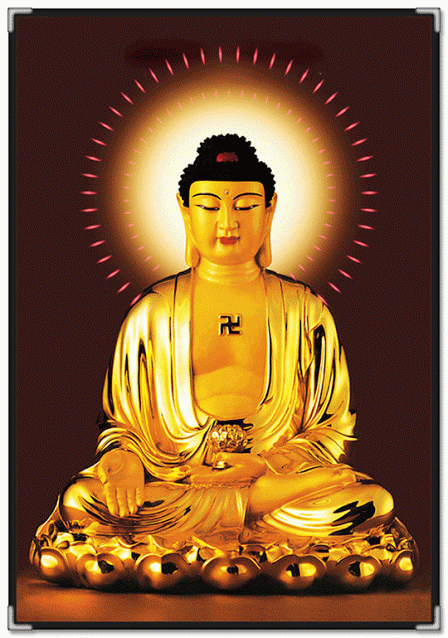
The Khuddaka Nikaya, or “Collection of Little Texts” (Pali khudda
= “smaller; lesser”), the fifth division of the Sutta Pitaka, is a
wide-ranging collection of fifteen books (eighteen in the Burmese
Tipitaka) containing complete suttas, verses, and smaller fragments of
Dhamma teachings. While many of these have been treasured and memorized
by devout Buddhists around the world for centuries, others have never
left the private domain of Pali scholars; some have yet to be translated
into English.
-
Article Count:
-
122

-
Khuddakapatha (The Short Passages)
The Khuddakapatha is a collection of nine short passages that
may have been designed as a primer for novice monks and nuns. It
includes several essential texts that are still chanted daily by
laypeople and monastics around the world of Theravada Buddhism.
-
Article Count:
-
1
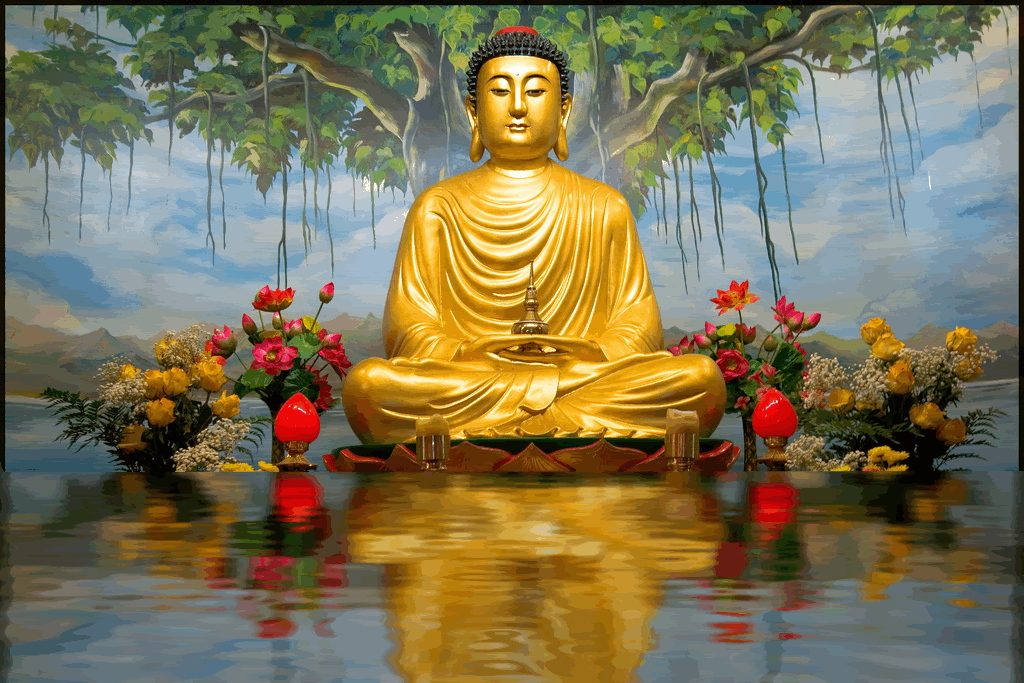
-
Dhammapada
The Dhammapada, an anthology of verses attributed to the Buddha,
has long been recognized as one of the masterpieces of early Buddhist
literature. Only more recently have scholars realized that it is also
one of the early masterpieces in the Indian tradition of kavya, or belles lettres.
-
Article Count:
-
26

-
Udana
The Udana, the third book of the Khuddaka Nikaya, offers a rich
collection of short suttas, each of which culminates in a short verse
uttered by the Buddha. Altogether there are eighty suttas, arranged in
eight vaggas, or chapters.
-
Article Count:
-
80
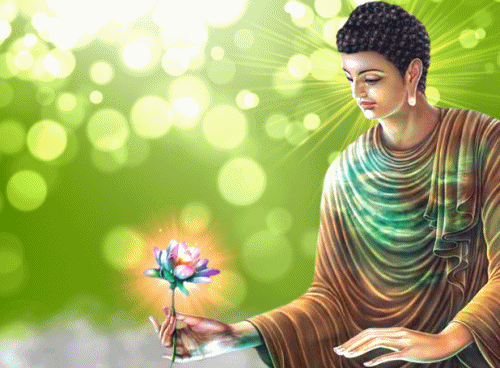
-
Itivuttaka
The Itivuttaka, a collection of 112 short discourses, takes its
name from the statement at the beginning of each of its discourses: this
(iti) was said (vuttam) by the Blessed One. The collection as a whole is attributed to a laywoman named Khujjuttara, who worked in the palace of King
Udena of Kosambi as a servant to one of his queens, Samavati. Because
the Queen could not leave the palace to hear the Buddha’s discourses,
Khujjuttara went in her place, memorized what the Buddha said, and then
returned to the palace to teach the Queen and her 500 ladies-in-waiting.
For her efforts, the Buddha cited Khujjuttara as the foremost of his
laywomen disciples in terms of her learning. She was also an effective
teacher: when the inner apartments of the palace later burned down,
killing the Queen and her entourage, the Buddha commented (in Udana
VII.10) that all of the women had reached at least the first stage of
Awakening.
-
Article Count:
-
4

-
Sutta Nipata
The Sutta Nipata (”The Sutta Collection”), the fifth book of the Khuddaka Nikaya, consists of 71 short suttas divided into five vaggas (chapters).
-
Article Count:
-
11

-
Vimanavatthu
The Vimanavatthu of the Khuddaka Nikaya is a collection of 83 stories in verse describing the vimana [vimaana] — a kind of personal heavenly mansion — inhabited by beings reborn as gods or goddesses (devata [devataa])
as a reward for meritorious deeds performed by them as human beings.
All the stories follow a similar pattern. They begin with an
introductory verse (or verses) in which the god or goddess is asked
about the cause for his or her rebirth within that particular mansion.
The deva thereupon relates his or her previous good deeds.
-
Article Count:
-
0
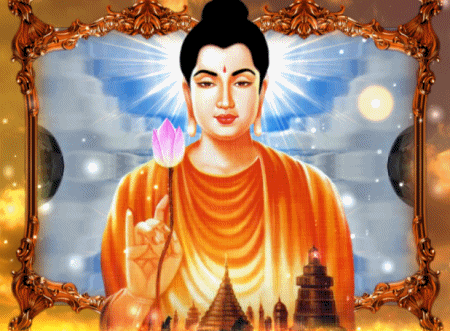
-
Petavatthu
The Petavatthu contains 51 poems, each explaining how
unwholesome deeds led to the rebirth of a being into the miserable realm
of the “hungry ghosts” (peta).
-
Article Count:
-
0
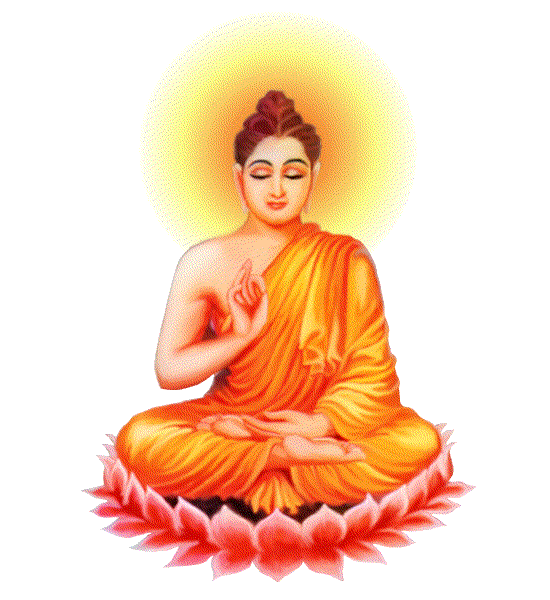
-
Theragatha
The Theragatha, the eighth book of the Khuddaka Nikaya, consists of 264 poems — 1,291 stanzas in all — in which the early monks (bhikkhus)
recount their struggles and accomplishments along the road to
arahantship. Their stories are told with often heart-breaking honesty
and beauty, revealing the deeply human side of these extraordinary men,
and thus serve as inspiring reminders of our own potential to follow in
their footsteps.
-
Article Count:
-
0

-
Therigatha
The Therigatha, the ninth book of the Khuddaka Nikaya, consists of 73 poems — 522 stanzas in all — in which the early nuns (bhikkhunis)
recount their struggles and accomplishments along the road to
arahantship. Their stories are told with often heart-breaking honesty
and beauty, revealing the deeply human side of these extraordinary
women, and thus serve as inspiring reminders of our own potential to
follow in their footsteps.
-
Article Count:
-
0
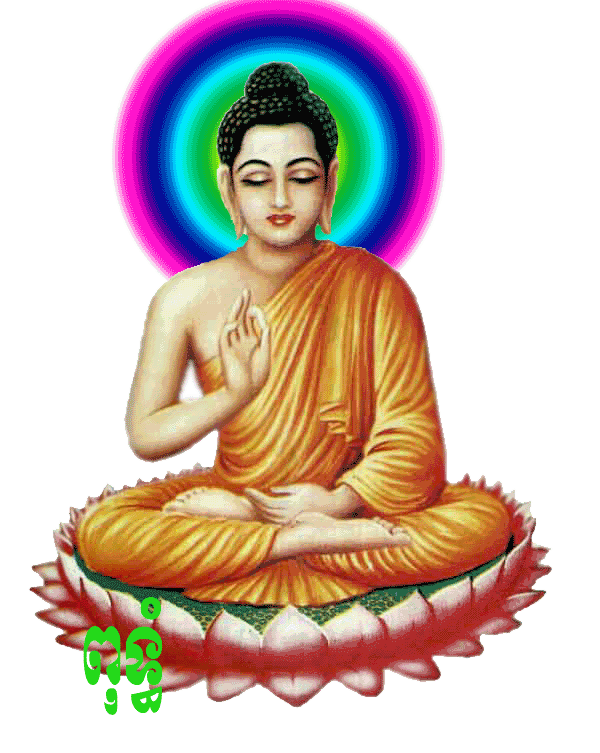
-
Jataka
-
Article Count:
-
0
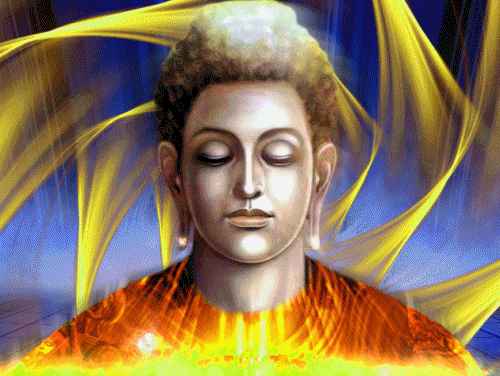
-
Niddesa
-
Article Count:
-
0

-
Patisambhidamagga
-
Article Count:
-
0

-
Apadana
-
Article Count:
-
0
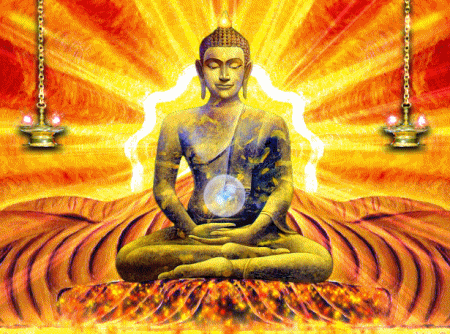
-
Buddhavamsa
-
Article Count:
-
0

-
Cariyapitaka
-
Article Count:
-
0

-
Petakopadesa
-
Article Count:
-
0

-
Milindapañha
The Milindapañha, the eighteenth book of the Khuddaka Nikaya
(according to the Burmese version of the Pali canon), consists of 7
parts as shown below. The conclusion to the Milindapañha states that it
contains 262 questions, though in the editions available today only 236
can be found. Although not included as a canonical text in the
traditions of all the Theravadin countries, this work is much revered
throughout and is one of the most popular and authoritative works of
Pali Buddhism.
-
Article Count:

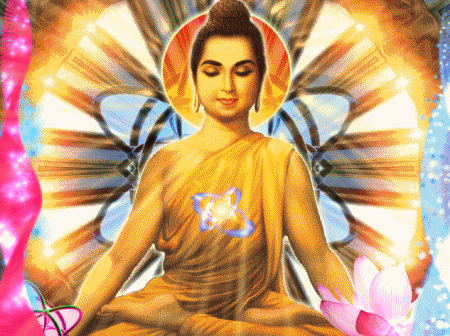
 Buddha the Awakened One with Awareness
Buddha the Awakened One with Awareness

from
Analytic Insight Net -
Pali Canon Online
The Original Words of the Buddha
Pali Canon Online
The Original Words of the Buddha
in 01) Classical Magahi Magadhi,
02) Classical Chandaso language,
03)Magadhi Prakrit,
04) Classical Hela Basa (Hela Language),
05) Classical Pali,
06) Classical Deva Nagari,
07) Classical Cyrillic,29) Classical English,
The Classification of Tipitaka
Preface
Tipitaka in Theravada Tradition is a huge collection of
teachingsattributed to the Buddha and His eminent disciples written down
in analmost dead and very ancient language named “Pali”. Owing to
thelanguage in which His precious words were inscribed Theravada
traditionis also well known as “Pali Buddhism”. There are other versions
of Tipitaka available in Sanskrit and Chinese for Mahayana
Tradition.Tipitaka is considered to be the most authentic texts for all
the Buddhistsregardless of schools and for the ‘Truth Seekers’ as well.
Buddhist worldwith its all complements like Sangha community, laity,
Buddhist culture,Buddhist education, propagation, missionary works,
research etc, is verymuch dependent on this Canonical Pali Literature
called “Tipitaka” as thenucleus of the sources.Even though I’ve studied
some training rules, suttas, and the ultimaterealities for my BA degree,
I did not know the Essential Structure or theconstituents of whole
Tipitaka. To prepare the assignment on
“TheClassification of Tipitaka”
for one of the important subjects of IMAP
“Tipitaka Studies”
conducted by
lecturer venerable PhraSudhivorayan
helped me to have a beautiful portrayal of entire TipitakaFramework and
perhaps a guideline to explore any subject matters in it.Actually for
the preparation of the assignment I had to search manyrelated books of
renowned scholars including the translated Pali Canonitself. I’ve come
across different interpretations, views, explanations of certain subject
matter on Nikayas and the authentic Pali text itself whichI’ve very
much tried to mention in this paper in the chapter concerned.An account
of the emergence and development of Tipitaka throughout theAges with
brief record of important Buddhist Synods has been provided.And I’ve
also attempted to give brief elaboration on divisions (vagga)
andsub-divisions of each Nikaya; important training rules &
regulations,Vinaya Kamma, rites for bhikkhus and bhikkhunis in Vinaya
Pitaka;elucidation of seven Abhidhamma books in nut shell.My sincere
gratitude goes to lecturer
Phra Sudhivorayan
,
librarian,officials, my senior Dhamma friends, colleagues for their
respectivecontributions to complete this paper on time.Wat Pawana, Bang
Khun Non. Ven. Binayananda SramanBangkok,12
th
October 2008
2
The Classification of Tipitaka
Contents
I.Introduction
II.
The role of Tipitaka as the Buddhist scripture2.1: Definition of
Tipitaka2.2: The emergence and development of Tipitaka2.4:
Classification of Tipitaka in a chart III.Vinaya Pitaka3.1: The essence
of the basket of discipline3.2: The constituents of Vinaya Pitaka3.3: A
brief elucidation of the constituents of VinayaPitakaIV.Suttanta
Pitaka4.1: The essence of the basket of great discourses4.2: The
constituents of Suttanta Pitaka4.3: A brief elaboration of the
constituents of SuttantaPitaka
V.
Abhidhamma Pitaka5.1: The
essence of the basket of higher discourses5.2: The constituents of
Abhidhamma Pitaka5.3: A brief elucidation of the constituents of
Abhidhamma Pitaka VI.The benefits of Tipitaka StudiesVII. Conclusion
Bibliography/ Reference
3
Related Interests
Buddhist TextsGautama BuddhaBhikkhuReligious ComparisonIndian Religions
Documents Similar To The Classification of Tipitaka
Carousel Next
The Classification of Tipitaka
The Classification of Tipitaka
Uploaded by
blmitra1
TRIPITAKA
TRIPITAKA
Uploaded by
NikhleshRamesh
Horner I B Tr Book of the Discipline Vinaya Pitaka Vol VI Parivara 428p
Horner I B Tr Book of the Discipline Vinaya Pitaka Vol VI Parivara 428p
Uploaded by
trungdaongo
Book of Gradual Sayings [Anguttara-Nikaya] Vol. v (2003). (259p) - Woodward, F.L.; Hare, E.M. (Trs) -
Book of Gradual Sayings [Anguttara-Nikaya] Vol. v (2003). (259p) - Woodward, F.L.; Hare, E.M. (Trs) -
Uploaded by
EvamMeSuttam
Further Dialoges of the Buddha
Further Dialoges of the Buddha
Uploaded by
spootland
Book of Gradual Sayings [Anguttara-Nikaya] Vol. III (2008). (355p) - Woodward, F.L.; Hare, E.M. (Trs) -
Book of Gradual Sayings [Anguttara-Nikaya] Vol. III (2008). (355p) - Woodward, F.L.; Hare, E.M. (Trs) -
Uploaded by
EvamMeSuttam
Book of Gradual Sayings [Anguttara-Nikaya] Vol. IV (2006). (349p) - Woodward, F.L.; Hare, E.M. (Trs) -
Book of Gradual Sayings [Anguttara-Nikaya] Vol. IV (2006). (349p) - Woodward, F.L.; Hare, E.M. (Trs) -
Uploaded by
EvamMeSuttam
Functions of the Eight Kinds of Consciousness in Yogacara
Functions of the Eight Kinds of Consciousness in Yogacara
Uploaded by
ANKUR BARUA
Pali First-year All
Pali First-year All
Uploaded by
Danuma Gyi
The Literature of the Theravada Abhidhamma
The Literature of the Theravada Abhidhamma
Uploaded by
ANKUR BARUA
Abhidharmakosabhasyam,Vol 1,Vasubandhu,Poussin,Pruden,1991
Abhidharmakosabhasyam,Vol 1,Vasubandhu,Poussin,Pruden,1991
Uploaded by
Uanderer
(PDF) - Buddhist eBook - Good Questions and Good Answers
(PDF) - Buddhist eBook - Good Questions and Good Answers
Uploaded by
terrylim
Pali Txts 6th Council
Pali Txts 6th Council
Uploaded by
wmpruitt06
JIvaka and Ayurveda.pdf
JIvaka and Ayurveda.pdf
Uploaded by
kpshankaran123
2013 Perth Tour E-Flier
2013 Perth Tour E-Flier
Uploaded by
richbert
Ethical Concept of Buddhist Social Development (Full Article by. Phodhi)
Ethical Concept of Buddhist Social Development (Full Article by. Phodhi)
Uploaded by
ສຽງທັມVOICE
Kern and the Study of Indian Buddhism_ With a Speculative Note on the Ceylonese Dhammarucikas
Kern and the Study of Indian Buddhism_ With a Speculative Note on the Ceylonese Dhammarucikas
Uploaded by
onlineyyk
Buddhism
Buddhism
Uploaded by
Majjhima Champa
Origin and Varieties of Buddhist Sanskrit
Origin and Varieties of Buddhist Sanskrit
Uploaded by
111-365340
Kieffer-Pulz P.-ceremonial Boundaries in the Sri Lanka
Kieffer-Pulz P.-ceremonial Boundaries in the Sri Lanka
Uploaded by
shu_s
Peter N. GREGORY - Is Critical Buddhism Really Critical? - p. 286
Peter N. GREGORY - Is Critical Buddhism Really Critical? - p. 286
Uploaded by
Ɓuddhisterie
Buddhism
Buddhism
Uploaded by
opel1
Buddhist Meditation
Buddhist Meditation
Uploaded by
nieotyagi
More From Fabiana Fabian
Carousel Next
ecrire-sf.pdf
ecrire-sf.pdf
Uploaded by
Fabiana Fabian
Michael J. Pettid Korean Cuisine an Illustrated
Michael J. Pettid Korean Cuisine an Illustrated
Uploaded by
Fabiana Fabian
deco soie bourgeois.PDF
deco soie bourgeois.PDF
Uploaded by
Fabiana Fabian
Andy_Sawyer,_David_Seed_Speaking_Science_Fiction.pdf
Andy_Sawyer,_David_Seed_Speaking_Science_Fiction.pdf
Uploaded by
Fabiana Fabian
Patricia Pisters the Matrix of Visual Culture W
Patricia Pisters the Matrix of Visual Culture W
Uploaded by
Fabiana Fabian
Jennifer Cahill Secrets of the Ninja Their Trai
Jennifer Cahill Secrets of the Ninja Their Trai
Uploaded by
Fabiana Fabian
Ralph C. Wilcox, David L. Andrews, Robert Pitter-Sporting Dystopias
Ralph C. Wilcox, David L. Andrews, Robert Pitter-Sporting Dystopias
Uploaded by
Fabiana Fabian
Deborah Cartmell I.Q. Hunter Heidi Kaye Imelda
Deborah Cartmell I.Q. Hunter Heidi Kaye Imelda
Uploaded by
Fabiana Fabian
Thomas Moylan, Tom Moylan Scraps of the Untainte
Thomas Moylan, Tom Moylan Scraps of the Untainte
Uploaded by
Fabiana Fabian
David Shulman, Guy G. Stroumsa] Dream Cultures E
David Shulman, Guy G. Stroumsa] Dream Cultures E
Uploaded by
Fabiana Fabian
Film Funding Opportunities Germany
Film Funding Opportunities Germany
Uploaded by
Fabiana Fabian
Craciunul in Traditia Initiatica
Craciunul in Traditia Initiatica
Uploaded by
Fabiana Fabian
Revista Nr. 9
Revista Nr. 9
Uploaded by
Fabiana Fabian
Korea Shooting Guide-English
Korea Shooting Guide-English
Uploaded by
Fabiana Fabian
Rumi Lassaad Metoui JeanClaude Carriere Love
Rumi Lassaad Metoui JeanClaude Carriere Love
Uploaded by
Fabiana Fabian
Nouvelle Lune en Maisons
Nouvelle Lune en Maisons
Uploaded by
Fabiana Fabian
Dictionnaire Des Symboles Musulmans
Dictionnaire Des Symboles Musulmans
Uploaded by
Fabiana Fabian
Facts About Korea French
Facts About Korea French
Uploaded by
Fabiana Fabian
KoreanCinema2010s[1]
KoreanCinema2010s[1]
Uploaded by
Fabiana Fabian
Footer Menu
Back To Top
About
About Scribd
Press
Our blog
Join our team!
Contact Us
Invite Friends
Gifts
Support
Help / FAQ
Accessibility
Purchase help
AdChoices
Publishers
Legal
Terms
Privacy
Copyright
Social Media
Scribd - Download on the App Store
Scribd - Get it on Google Play
Copyright © 2018 Scribd Inc.Browse BooksSite DirectorySite Language:
English
 http://palicanon.org/index.php/sutta-pitaka
http://palicanon.org/index.php/sutta-pitaka
Pali Canon Online
The Original Words of the Buddha
Sutta Pitaka
The collection of suttas, or discourses, attributed to the
Buddha and a few of his closest disciples, containing all the central
teachings of Buddhism.
Subcategories 
The Khuddaka Nikaya, or “Collection of Little Texts” (Pali khudda
= “smaller; lesser”), the fifth division of the Sutta Pitaka, is a
wide-ranging collection of fifteen books (eighteen in the Burmese
Tipitaka) containing complete suttas, verses, and smaller fragments of
Dhamma teachings. While many of these have been treasured and memorized
by devout Buddhists around the world for centuries, others have never
left the private domain of Pali scholars; some have yet to be translated
into English.
-
Article Count:
-
122

-
Khuddakapatha (The Short Passages)
The Khuddakapatha is a collection of nine short passages that
may have been designed as a primer for novice monks and nuns. It
includes several essential texts that are still chanted daily by
laypeople and monastics around the world of Theravada Buddhism.
-
Article Count:
-
1

-
Dhammapada
The Dhammapada, an anthology of verses attributed to the Buddha,
has long been recognized as one of the masterpieces of early Buddhist
literature. Only more recently have scholars realized that it is also
one of the early masterpieces in the Indian tradition of kavya, or belles lettres.
-
Article Count:
-
26

-
Udana
The Udana, the third book of the Khuddaka Nikaya, offers a rich
collection of short suttas, each of which culminates in a short verse
uttered by the Buddha. Altogether there are eighty suttas, arranged in
eight vaggas, or chapters.
-
Article Count:
-
80

-
Itivuttaka
The Itivuttaka, a collection of 112 short discourses, takes its
name from the statement at the beginning of each of its discourses: this
(iti) was said (vuttam) by the Blessed One. The collection as a whole is attributed to a laywoman named Khujjuttara, who worked in the palace of King
Udena of Kosambi as a servant to one of his queens, Samavati. Because
the Queen could not leave the palace to hear the Buddha’s discourses,
Khujjuttara went in her place, memorized what the Buddha said, and then
returned to the palace to teach the Queen and her 500 ladies-in-waiting.
For her efforts, the Buddha cited Khujjuttara as the foremost of his
laywomen disciples in terms of her learning. She was also an effective
teacher: when the inner apartments of the palace later burned down,
killing the Queen and her entourage, the Buddha commented (in Udana
VII.10) that all of the women had reached at least the first stage of
Awakening.
-
Article Count:
-
4

-
Sutta Nipata
The Sutta Nipata (”The Sutta Collection”), the fifth book of the Khuddaka Nikaya, consists of 71 short suttas divided into five vaggas (chapters).
-
Article Count:
-
11

-
Vimanavatthu
The Vimanavatthu of the Khuddaka Nikaya is a collection of 83 stories in verse describing the vimana [vimaana] — a kind of personal heavenly mansion — inhabited by beings reborn as gods or goddesses (devata [devataa])
as a reward for meritorious deeds performed by them as human beings.
All the stories follow a similar pattern. They begin with an
introductory verse (or verses) in which the god or goddess is asked
about the cause for his or her rebirth within that particular mansion.
The deva thereupon relates his or her previous good deeds.
-
Article Count:
-
0

-
Petavatthu
The Petavatthu contains 51 poems, each explaining how
unwholesome deeds led to the rebirth of a being into the miserable realm
of the “hungry ghosts” (peta).
-
Article Count:
-
0

-
Theragatha
The Theragatha, the eighth book of the Khuddaka Nikaya, consists of 264 poems — 1,291 stanzas in all — in which the early monks (bhikkhus)
recount their struggles and accomplishments along the road to
arahantship. Their stories are told with often heart-breaking honesty
and beauty, revealing the deeply human side of these extraordinary men,
and thus serve as inspiring reminders of our own potential to follow in
their footsteps.
-
Article Count:
-
0

-
Therigatha
The Therigatha, the ninth book of the Khuddaka Nikaya, consists of 73 poems — 522 stanzas in all — in which the early nuns (bhikkhunis)
recount their struggles and accomplishments along the road to
arahantship. Their stories are told with often heart-breaking honesty
and beauty, revealing the deeply human side of these extraordinary
women, and thus serve as inspiring reminders of our own potential to
follow in their footsteps.
-
Article Count:
-
0

-
Jataka
-
Article Count:
-
0

-
Niddesa
-
Article Count:
-
0

-
Patisambhidamagga
-
Article Count:
-
0

-
Apadana
-
Article Count:
-
0

-
Buddhavamsa
-
Article Count:
-
0

-
Cariyapitaka
-
Article Count:
-
0

-
Petakopadesa
-
Article Count:
-
0

-
Milindapañha
The Milindapañha, the eighteenth book of the Khuddaka Nikaya
(according to the Burmese version of the Pali canon), consists of 7
parts as shown below. The conclusion to the Milindapañha states that it
contains 262 questions, though in the editions available today only 236
can be found. Although not included as a canonical text in the
traditions of all the Theravadin countries, this work is much revered
throughout and is one of the most popular and authoritative works of
Pali Buddhism.
-
Article Count:

Pali Canon Online
The Original Words of the Buddha
Sutta Pitaka
The collection of suttas, or discourses, attributed to the
Buddha and a few of his closest disciples, containing all the central
teachings of Buddhism.
Subcategories 
The Khuddaka Nikaya, or “Collection of Little Texts” (Pali khudda
= “smaller; lesser”), the fifth division of the Sutta Pitaka, is a
wide-ranging collection of fifteen books (eighteen in the Burmese
Tipitaka) containing complete suttas, verses, and smaller fragments of
Dhamma teachings. While many of these have been treasured and memorized
by devout Buddhists around the world for centuries, others have never
left the private domain of Pali scholars; some have yet to be translated
into English.
- Article Count:
-
122

-
Khuddakapatha (The Short Passages)
The Khuddakapatha is a collection of nine short passages that
may have been designed as a primer for novice monks and nuns. It
includes several essential texts that are still chanted daily by
laypeople and monastics around the world of Theravada Buddhism.- Article Count:
-
1

-
Dhammapada
The Dhammapada, an anthology of verses attributed to the Buddha,
has long been recognized as one of the masterpieces of early Buddhist
literature. Only more recently have scholars realized that it is also
one of the early masterpieces in the Indian tradition of kavya, or belles lettres.- Article Count:
-
26

-
Udana
The Udana, the third book of the Khuddaka Nikaya, offers a rich
collection of short suttas, each of which culminates in a short verse
uttered by the Buddha. Altogether there are eighty suttas, arranged in
eight vaggas, or chapters.- Article Count:
-
80

-
Itivuttaka
The Itivuttaka, a collection of 112 short discourses, takes its
name from the statement at the beginning of each of its discourses: this
(iti) was said (vuttam) by the Blessed One. The collection as a whole is attributed to a laywoman named Khujjuttara, who worked in the palace of King
Udena of Kosambi as a servant to one of his queens, Samavati. Because
the Queen could not leave the palace to hear the Buddha’s discourses,
Khujjuttara went in her place, memorized what the Buddha said, and then
returned to the palace to teach the Queen and her 500 ladies-in-waiting.
For her efforts, the Buddha cited Khujjuttara as the foremost of his
laywomen disciples in terms of her learning. She was also an effective
teacher: when the inner apartments of the palace later burned down,
killing the Queen and her entourage, the Buddha commented (in Udana
VII.10) that all of the women had reached at least the first stage of
Awakening.- Article Count:
-
4

-
Sutta Nipata
The Sutta Nipata (”The Sutta Collection”), the fifth book of the Khuddaka Nikaya, consists of 71 short suttas divided into five vaggas (chapters).
- Article Count:
-
11

-
Vimanavatthu
The Vimanavatthu of the Khuddaka Nikaya is a collection of 83 stories in verse describing the vimana [vimaana] — a kind of personal heavenly mansion — inhabited by beings reborn as gods or goddesses (devata [devataa])
as a reward for meritorious deeds performed by them as human beings.
All the stories follow a similar pattern. They begin with an
introductory verse (or verses) in which the god or goddess is asked
about the cause for his or her rebirth within that particular mansion.
The deva thereupon relates his or her previous good deeds.- Article Count:
-
0

-
Petavatthu
The Petavatthu contains 51 poems, each explaining how
unwholesome deeds led to the rebirth of a being into the miserable realm
of the “hungry ghosts” (peta).- Article Count:
-
0

-
Theragatha
The Theragatha, the eighth book of the Khuddaka Nikaya, consists of 264 poems — 1,291 stanzas in all — in which the early monks (bhikkhus)
recount their struggles and accomplishments along the road to
arahantship. Their stories are told with often heart-breaking honesty
and beauty, revealing the deeply human side of these extraordinary men,
and thus serve as inspiring reminders of our own potential to follow in
their footsteps.- Article Count:
-
0

-
Therigatha
The Therigatha, the ninth book of the Khuddaka Nikaya, consists of 73 poems — 522 stanzas in all — in which the early nuns (bhikkhunis)
recount their struggles and accomplishments along the road to
arahantship. Their stories are told with often heart-breaking honesty
and beauty, revealing the deeply human side of these extraordinary
women, and thus serve as inspiring reminders of our own potential to
follow in their footsteps.- Article Count:
-
0

-
Jataka
- Article Count:
-
0

-
Niddesa
- Article Count:
-
0

-
Patisambhidamagga
- Article Count:
-
0

-
Apadana
- Article Count:
-
0

-
Buddhavamsa
- Article Count:
-
0

-
Cariyapitaka
- Article Count:
-
0

-
Petakopadesa
- Article Count:
-
0

-
Milindapañha
The Milindapañha, the eighteenth book of the Khuddaka Nikaya
(according to the Burmese version of the Pali canon), consists of 7
parts as shown below. The conclusion to the Milindapañha states that it
contains 262 questions, though in the editions available today only 236
can be found. Although not included as a canonical text in the
traditions of all the Theravadin countries, this work is much revered
throughout and is one of the most popular and authoritative works of
Pali Buddhism.- Article Count:




from
from

Online Tipiṭaka Research and Practice
University and related NEWS through
http://sarvajan.ambedkar.org
in
112 CLASSICAL LANGUAGES
Nikhilavijjālaya ca ñātibhūta Pavatti Nissāya
http://sarvajan.ambedkar.org anto 112 Seṭṭhaganthāyatta Bhāsā
an Online GOOD NEWS CHANNEL FOR WELFARE, HAPPINESS AND PEACE FOR ALL
SOCIETIES Catering to more than 3000 Emails: 200 WhatsApp, Facebook and
Twitter.
is the most Positive Energy of informative and research oriented site propagating the teachings of the Awakened One with Awareness the Buddha and on Techno-Politico-Socio Transformation and Economic Emancipation Movement followed by millions of people all over the world.
Rendering exact translation as a lesson of this University in one’s mother tongue to this Google Translation using
https://translate.google.com/#en/bn/ and propagation entitles to become a Stream Enterer (Sottapanna) and to attain Eternal Bliss as a Final Goal.THIS IS AN EXERCISE FOR ALL THE ONLINE VISITING STUDENTS FOR THEIR PRACTICE
MAY ALL SENTIENT AND NON-SENTIENT BEINGS BE EVER HAPPY, WELL AND SECURE !
MAY ALL HAVE CALM, QUIET, ALERT, ATTENTIVE AND EQUANIMITY MIND
WITH A CLEAR UNDERSTANDING THAT EVERYTHING IS CHANGING !
ALWAYS DO GOOD AND BE MINDFUL BY PURIFICATION OF THE MIND !
BUDDHA MEANS AWAKENED ONE (A1)WITH AWARENESS !
WE WERE BUDDHISTS, WE ARE BUDDHISTS AND WE CONTINUE TO BE BUDDHISTS
DHAMMO RAKKAHATHI RAKKHITHA !
DHAMMA PROTECTS ONE WHO PROTECTS DHAMMA !

Classical Buddhism (Teachings of the Awakened One with Awareness) belong to the world, and everyone have exclusive rights:JC
of
Free Online
(A1wAM)+ ioT (insight-net of Things) - the art of Giving, taking and Living to attain Eternal Bliss
as Final Goal through Electronic Visual Communication Course on
Political Science -Techno-Politico-Socio Transformation and Economic
Emancipation Movement (TPSTEEM)
As
Dana Service on the occasion of Birthday and all auspicious occasions
of your family and friends Donate Breakfast/Meals to all the Monks of
Maha Bodhi Society
14, Kalidasa Raod, Gandhinagar, Bengaluru 560009 India
Tel: 09731635108, 0943158020
Email: info@mahabodhi.info
www.mahabodhi.info
பாரம்பரிய இசைத்தமிழ் செம்மொழி
Buddhist Websites
தர்ம போதனைகள் (காணொளிகள்)
புத்த
பகவான் தன் திருவாய் மலர்ந்து போதித்தருளிய உன்னத தர்மத்தினை எமது தாய்
மொழியிலேயே விபரமாகவும் விரிவாகவும் கற்றுக்கொள்வதற்கு உங்களாலும்
முடியும். அதற்காக எமது இணையத்தளத்தினூடாக வெளியிடப்படும் தர்ம காணொளிகளை
நீங்கள் இங்கே பார்க்க முடியும்.
in 01) Classical Magahi Magadhi,
02) Classical Chandaso language,
03)Magadhi Prakrit,
04) Classical Hela Basa (Hela Language),
05) Classical Pali,
06) Classical Deva Nagari,
07) Classical Cyrillic
08) Classical Afrikaans– Klassieke Afrikaans
09) Classical Albanian-Shqiptare klasike,
10) Classical Amharic-አንጋፋዊ አማርኛ,
11) Classical Arabic-اللغة العربية الفصحى
12) Classical Armenian-դասական հայերեն,
13) Classical Azerbaijani- Klassik Azərbaycan,
14) Classical Basque- Euskal klasikoa,
15) Classical Belarusian-Класічная беларуская,
16) Classical Bengali-ক্লাসিক্যাল বাংলা,
17) Classical Bosnian-Klasični bosanski,
18) Classical Bulgaria- Класически българск,
19) Classical Catalan-Català clàssic
20) Classical Cebuano-Klase sa Sugbo,
21) Classical Chichewa-Chikale cha Chichewa,
22) Classical Chinese (Simplified)-古典中文(简体),
23) Classical Chinese (Traditional)-古典中文(繁體),
24) Classical Corsican-Corsa Corsicana,
25) Classical Croatian-Klasična hrvatska,
26) Classical Czech-Klasická čeština,
27) Classical Danish-Klassisk dansk,Klassisk dansk,
28) Classical Dutch- Klassiek Nederlands,
29) Classical English,
30) Classical Esperanto-Klasika Esperanto,
31) Classical Estonian- klassikaline eesti keel,
32) Classical Filipino,
33) Classical Finnish- Klassinen suomalainen,
34) Classical French- Français classique,
35) Classical Frisian- Klassike Frysk,
36) Classical Galician-Clásico galego,
37) Classical Georgian-კლასიკური ქართული,
38) Classical German- Klassisches Deutsch,
39) Classical Greek-Κλασσικά Ελληνικά,
40) Classical Gujarati-ક્લાસિકલ ગુજરાતી,
41) Classical Haitian Creole-Klasik kreyòl,
42) Classical Hausa-Hausa Hausa,
43) Classical Hawaiian-Hawaiian Hawaiian,
44) Classical Hebrew- עברית קלאסית
45) Classical Hindi-45) शास्त्रीय हिंदी,
46) Classical Hmong- Lus Hmoob,
47) Classical Hungarian-Klasszikus magyar,
48) Classical Icelandic-Klassísk íslensku,
49) Classical Igbo,
50) Classical Indonesian-Bahasa Indonesia Klasik,
51) Classical Irish-Indinéisis Clasaiceach,
52) Classical Italian-Italiano classico,
53) Classical Japanese-古典的なイタリア語,
54) Classical Javanese-Klasik Jawa,
55) Classical Kannada- ಶಾಸ್ತ್ರೀಯ ಕನ್ನಡ,
56) Classical Kazakh-Классикалық қазақ,
57) Classical Khmer- ខ្មែរបុរាណ,
58) Classical Korean-고전 한국어,
59) Classical Kurdish (Kurmanji)-Kurdî (Kurmancî),
60) Classical Kyrgyz-Классикалык Кыргыз,
61) Classical Lao-ຄລາສສິກລາວ,
62) Classical Latin-LXII) Classical Latin,
63) Classical Latvian-Klasiskā latviešu valoda,
64) Classical Lithuanian-Klasikinė lietuvių kalba,
65) Classical Luxembourgish-Klassesch Lëtzebuergesch,
66) Classical Macedonian-Класичен македонски,
67) Classical Malagasy,
68) Classical Malay-Melayu Klasik,
69) Classical Malayalam-ക്ലാസിക്കൽ മലയാളം,
70) Classical Maltese-Klassiku Malti,
71) Classical Maori-Maori Maori,
72) Classical Marathi-क्लासिकल माओरी,
73) Classical Mongolian-Сонгодог Монгол,
74) Classical Myanmar (Burmese)-Classical မြန်မာ (ဗမာ),
75) Classical Nepali-शास्त्रीय म्यांमार (बर्मा),
76) Classical Norwegian-Klassisk norsk,
77) Classical Pashto- ټولګی پښتو
78) Classical Persian-کلاسیک فارسی
79) Classical Polish-Język klasyczny polski,
80) Classical Portuguese-Português Clássico,
81) Classical Punjabi-ਕਲਾਸੀਕਲ ਪੰਜਾਬੀ,
82) Classical Romanian-Clasic românesc,
83) Classical Russian-Классический русский,
84) Classical Samoan-Samoan Samoa,
85) Classical Scots Gaelic-Gàidhlig Albannach Clasaigeach,
86) Classical Serbian-Класични српски,
87) Classical Sesotho-Seserbia ea boholo-holo,
88) Classical Shona-Shona Shona,
89) Classical Sindhi,
90) Classical Sinhala-සම්භාව්ය සිංහල,
91) Classical Slovak-Klasický slovenský,
92) Classical Slovenian-Klasična slovenska,
93) Classical Somali-Soomaali qowmiyadeed,
94) Classical Spanish-Español clásico,
95) Classical Sundanese-Sunda Klasik,
96) Classical Swahili,
97) Classical Swedish-Klassisk svensk,
98) Classical Tajik-тоҷикӣ классикӣ,
99) Classical Tamil-பாரம்பரிய இசைத்தமிழ் செம்மொழி,
100) Classical Telugu- క్లాసికల్ తెలుగు,
101) Classical Thai-ภาษาไทยคลาสสิก,
102) Classical Turkish-Klasik Türk,
103) Classical Ukrainian-Класичний український,
104) Classical Urdu- کلاسیکی اردو
105) Classical Uzbek-Klassik o’zbek,
106) Classical Vietnamese-Tiếng Việt cổ điển,
107) Classical Welsh-Cymraeg Clasurol,
108) Classical Xhosa-IsiXhosa zesiXhosa,
109) Classical Yiddish- קלאסישע ייִדיש
110) Classical Yoruba-Yoruba Yoruba,
111) Classical Zulu-I-Classical Zulu







![]()
|
|
|
